The Goal and Mission of Haapsalu Viigi School
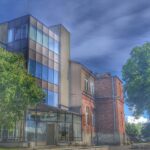
Our purpose s is to be a school with the highest level of competence and the most suitable physical learning environment in Estonia for students with musculoskeletal disorders, compound disabilities and intellectual disabilities.
The task of our school is to ensure opportunities based on the individuality of each student with special educational and physical needs for their all-round development and coping in life.
Study Organization
Teaching takes place in ordinary classes on the basis of the National Curriculum of Primary School, students take the same exams as in other general education schools on the basis of standardized materials upon graduation from primary school (with a 10-year study period). At the end of the school, students will receive a basic school leaving certificate.
According to the Simplified National Curriculum, simplified learning, coping learning and care learning are implemented:
- The study in the simplified study lasts 9 years, if necessary, the student can be left for an additional year, with the aim of preparing him for vocational training.
- In the case of coping and care education, based on a parent’s justified request, the study period can be extended by two academic years, up to 32 weekly hours in each academic year.
Support Services Offered
- Teacher consultations
- Special pedagogue
- Speech therapists
- Social pedagogue
- Psychologist
- Physiotherapy
- Riding therapy
- Vibroacoustic therapy
- Supporting treatment procedures (massage, ozokerite treatment, bubble therapy, health capsule)
- Sensory room
- Student dormitory
The Special Pedagogue
The task of the special pedagogue is to determine the level of the student’s development and learning skills, to find out the factors affecting his development and his learning needs, to practice attention and concentration, to develop cognitive processes, if necessary, to practice reading and writing skills; guidance and counseling of teachers in planning and conducting education
The Speech Therapist

The speech therapist’s job in the school is to support the development of the child’s oral and written speech and communication skills.
The Social Pedagogue
The purpose of the social pedagogue’s work is to support the student in preventing and solving various social problems, developing coping skills and coordinating networking.
The Psychologist
The psychologist supports the development of students in cooperation with parents, teachers and support staff.
The Physiotherapist
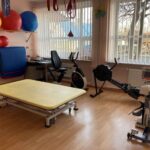
Physiotherapy is a part of rehabilitation based on physical exercises, manual techniques, replacement therapy, massage and physical methods (heat and cold therapy, etc.), the aim of which is to preserve, restore and develop the student’s ability to move and act and his ability to participate in everyday life.
The Riding Therapy
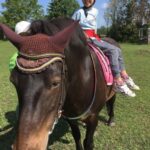
Riding therapy is a therapeutic activity carried out in cooperation between a riding therapist and his assistant and a horse that has received the appropriate training, based on the needs of the child and the goals set for the therapy. Riding therapy is suitable for the rehabilitation of children with mobility disabilities, combined disabilities, ATH, behavioral problems, and mood disorders.
The Vibroacoustic Therapy

The generally recognized effect of vibroacoustic therapy is a general calming and relaxing effect. The method has yielded positive results in promoting the health of children and adults with combined disabilities and in the case of functional disorders of the nervous system and several somatic diseases.
The Sensory Room
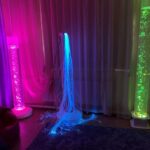
The sensory room expands the child’s perception of the environment through different senses. Through influencing the different senses, the child’s understanding of the surroundings develops, the understanding of sounds, colors and light effects improves and motor skills improve. In addition to pleasant spending time and relaxation, the sensorially diverse sensory room offers children the opportunity for individual development according to their abilities.
The Dormitory
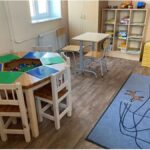
Children who live far from school live and study in the student home. Children participate in various school and group events and acquire skills for self-sufficiency.
The dormitory is closed during school holidays and weekends. The younger students of the city of Haapsalu can spend their free time after school under the supervision of the dormitory staff until their parents arrive.
How To Get To Our Service?
At the moment, we offer support services only to the students of our school, primarily considering the recommendations of the Rajaleidja (Pathfinder), but also the assessments of our specialists.
At the moment, we offer support services only to the students of our school, primarily considering the recommendations of the Pathfinder, but also the assessments of our specialists.
Prerequisites for admission to our school:
- parent’s statement;
- Pathfinder’s recommendation (curriculum, type of support, study organization);
- we proceed from the school’s statutes and the availability of free study places.
Hobby Activities
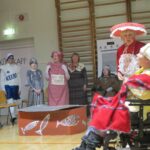
In order to enrich learning activities and support the multifaceted development of students, the school has a student government and organizes various hobby groups:
- The Art Circle,
- The Drama Circle,
- The Sports Circle,
- The Musical Instruments Circle,
- The Creative Circle,
- The Checkers Circle,
- The Bocce Circle,
- The Robotics Circle,
- The Motion Circle,
- The Dance Circle.
